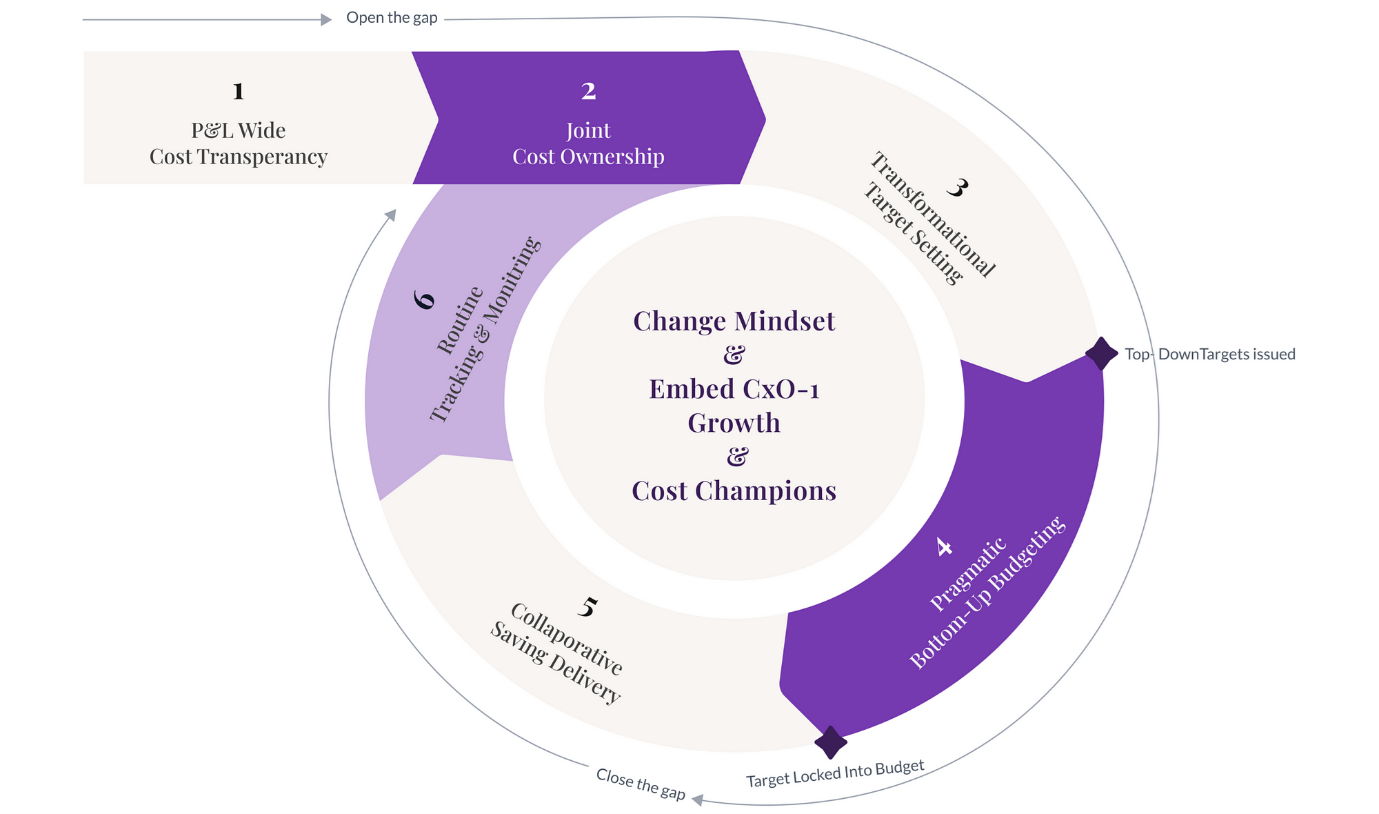Zero Based Budgeting (ZBB) for mid-caps: a practical CFO playbook

CFOs are custodians of enterprise cost control, and most mid-sized companies mandate a review process to establish rationale before incurring major one-off spend decisions such as CapEX. However, when tackling the recurring fixed costs, most CFOs face constant challenges of incomplete and Inconsistent management information, time gaps and intricacies of multiple Finance systems hindering fact-based decision making.
Zero Based Budgeting (ZBB) cost management discipline enables on-demand visibility through granular and consistent cost allocation, joint cost ownership challenging costs before they are incurred, intelligent top-down value targeting and ROI mindset using pragmatic bottom-up budgeting.

The key stages of above ‘toolkit tailored to MidCaps’ are game-changers for finance leadership during annual planning and QxF forecasting cycles:
Stages 1/2: During P&L wide discovery phase, FP&A plays an important role in identifying, enabling and categorising the main cost elements and prioritising their drivers. This phase is crucial to prioritising efforts of cost champions to drive insights and focus on underlying cost behaviours.
Stage 3: Intelligent top-down target setting takes the focus on underlying value driver closer to realistic benchmarks and actionable goals for subsequent P&L planning. It sets the tone for the bold but realistic budget targets with the view on overall enterprise performance.
Stage 4: Pragmatic Bottom-Up budgeting is now doable each year without disrupting BAU thanks to Off-the-shelf cloud-based budgeting tools such as Ananplan. The goal of this phase is to build a view of the consolidated and refined business future spend on each of the prioritised cost category which should adhere to clear operating targets and top-down benchmarks. The challenges of this phase include automation of inputs and consolidation of BU and subsidiaries / sites’ data files within geographic and Group FP&A function.
Stage 5/6: Benefits realisations and Tracking and Monitoring go hand in hand and are required to ensure the business is on track to deliver the agreed budget. Local and Group FP&A function support variance analysis while working in tandem with cost package and budget owners. They coordinate actions of stakeholders to keep the spend within the budgets or take corrective actions. Again, cloud-based technology solutions help eliminate manual tasks and reduce margins of error while keeping costs in check.
If it is run like a theoretical process, ZBB can be a resource intensive exercise disrupting BAU and disengaging staff having to provide justification for each penny of spend. That is why it is important to partner with a team of experts who can shape and drive pragmatic cost transformation agenda on ROI basis. Pragmatic ZBB, therefore, augments CFO’s ability to deliver radical but measurable results and achieve business targets on sustainable basis. The resulting improvement in the cost structure and ultimate business profitability makes the business more robust while helping it overcome business challenges by re-investing savings into growth and new enablers such as Digital.
If you are interested to explore how Renaissance Advisory can help your team with a ZBB roll-out, please, feel free to reach out for a confidential chat
Other articles
BVCA European Private Capital Middle East Conference
read the article

Multiple expansion in PE: levers buyers really pay for
read the article

Private equity within 401(k)s: benefits, risks and duties
read the article

Get in touch
Book a free value creation consultation
Schedule a confidential, no obligation discussion today.
Book your free consultation